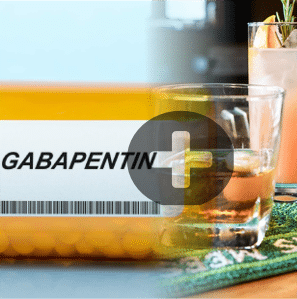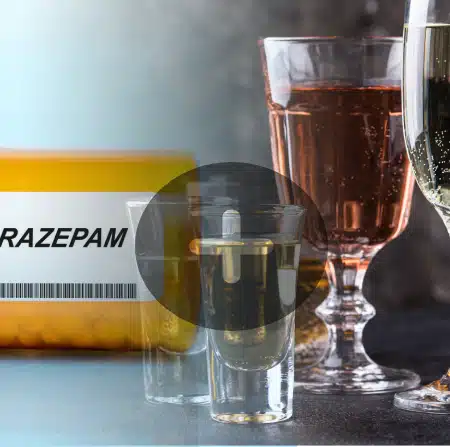The Dangers of Combining Ritalin & Alcohol
Mixing prescription drugs like Ritalin with substances like alcohol is a prevalent and concerning practice in today’s society. Combining these substances can impact a person’s physical and psychological health. This comprehensive examination aims to equip readers with vital knowledge, emphasizing that with the right help, recovery from addiction is not just a possibility but a reality.
What is Ritalin?
Ritalin, known as Methylphenidate, is a central nervous system stimulant widely prescribed for treating attention deficit hyperactivity disorder (ADHD) and narcolepsy. The drug works by increasing dopamine levels in the brain, enhancing attention, and reducing impulsivity and hyperactivity in ADHD patients.
While it serves a therapeutic purpose when used as prescribed, misuse or non-medical use of Ritalin—such as taking higher doses, more frequent doses, or using it in a manner not prescribed—can lead to harmful health effects. This includes addiction, irregular heartbeat, high blood pressure, and in severe cases, can result in seizures or heart failure.
Understanding Alcohol
Alcohol is one of the most commonly consumed substances worldwide, prevalent in various social and cultural contexts. It’s a depressant, meaning it slows down the brain’s function and affects a person’s perceptions, emotions, movement, vision, and hearing.
Consumed responsibly, alcohol can be part of social events and celebrations. However, when used excessively, it can lead to alcohol use disorder—a condition characterized by a pattern of excessive drinking despite the negative consequences it brings to one’s health, work, or personal relationships. Long-term misuse can cause serious health issues such as liver disease, cardiovascular diseases, respiratory issues, and even increase the risk of certain cancers.
Defining Alcohol Use Disorder (AUD)
Alcohol Use Disorder (AUD) is characterized by the harmful or hazardous consumption of alcohol. It refers to a pattern of drinking that results in one or more of the following situations within a 12-month period: failure to fulfill major obligations at work, school, or home; drinking in physically dangerous situations, such as while driving; having recurring alcohol-related legal problems; and continued drinking despite having ongoing relationship problems that are caused or worsened by the drinking.
Individuals who misuse alcohol may not always have a physical dependency, but they still have a serious disorder. The effects can be detrimental and life-altering, leading to issues such as health problems, impaired functioning, and difficulties in managing personal relationships. Long-term misuse of alcohol can result in numerous health conditions, including liver disease, cardiovascular problems, neurological damage, and an increased risk of certain types of cancers.
Alcohol misuse is a significant public health issue and is often associated with a range of societal problems, from violent behaviors and accidents to work-related issues and relationship disruptions. Early intervention and treatment are vital for preventing the development of alcohol dependence and for mitigating the negative impacts on an individual’s health and life.
Understanding Ritalin Misuse
Ritalin misuse refers to the misuse of this medication in a manner not directed by a healthcare professional. This could mean taking higher doses than prescribed, taking it more frequently, or using it in a way that was not intended, such as snorting or injecting the drug. While Ritalin is a prescription medication used to treat attention deficit hyperactivity disorder (ADHD) and narcolepsy, it has the potential for misuse due to its stimulant properties.
Individuals who misuse Ritalin may do so to enhance alertness and concentration or to experience a high. However, misuse of Ritalin can lead to serious health risks, including heart problems, seizures, and addiction. Psychologically, Ritalin misuse can result in paranoia, hallucinations, and altered mood states.
Misuse of Ritalin is especially prevalent among students and young adults, who may use the drug as a study aid due to its ability to increase focus and wakefulness. However, such misuse can lead to serious consequences, as the drug can have significant side effects, particularly when used inappropriately.
Just like alcohol use disorder, Ritalin misuse is a significant societal issue that requires awareness, early intervention, and appropriate treatment strategies to mitigate its harmful effects.
Risks Associated with Combining Ritalin and Alcohol
Physiological Consequences of Co-Ingestion
The concurrent consumption of Ritalin, a stimulant, and alcohol, a depressant, can lead to a significant physiological conflict in the body. This combination essentially sends mixed signals to the nervous system, causing it to oscillate between states of stimulation and depression. This could lead to erratic heart rhythms and elevated blood pressure and could even provoke seizures.
The potential for cardiovascular complications is significantly high due to the mixed messages the heart receives. This could result in heart palpitations, increased heart rate, and in severe cases, heart attack. Moreover, the liver, which is responsible for the metabolism of both substances, can also be heavily burdened by the co-ingestion of Ritalin and alcohol. Over time, this could lead to liver damage or disease.
Furthermore, mixing Ritalin and alcohol can lead to an increased risk of dehydration. Both substances are diuretics, meaning they increase urine production and can lead to a loss of fluids and electrolytes. Severe dehydration can affect numerous bodily functions and can cause symptoms such as dizziness, weakness, and even unconsciousness.
Psychological Impacts of Co-Ingestion
The psychological impacts of mixing Ritalin and alcohol are just as severe and concerning. Both substances can potentially influence an individual’s mental state significantly, and their combined effects can be exponentially detrimental.
Ritalin, on one hand, can cause feelings of euphoria and increase focus when used as prescribed. However, its misuse can lead to restlessness, agitation, and even paranoia. On the other hand, alcohol can lower inhibitions, impair judgment, and in higher quantities, lead to confusion and memory problems.
When combined, these two substances can interact in a way that exacerbates these effects. For example, the stimulating effect of Ritalin can mask the sedative effects of alcohol, potentially leading to alcohol poisoning as individuals may consume more alcohol than they would typically be able to handle.
Moreover, the combination can cause a significant increase in anxiety and can lead to mood swings, heightened aggression, and changes in personality. There is also a high risk of developing a substance use disorder, as the combined use can lead to an enhanced euphoric effect, which can increase the likelihood of repeated use and eventual dependency. In the long term, repeated co-ingestion can exacerbate existing mental health issues or contribute to the development of conditions such as depression or anxiety disorders.
The Science Behind the Interaction
The interaction between Ritalin and alcohol is complex and involves several biochemical processes within the brain.
Dopamine and Its Role
One of the primary mechanisms through which Ritalin works is by increasing the levels of a neurotransmitter called dopamine in the brain. Dopamine plays a vital role in regulating mood, focus, and feelings of pleasure. Ritalin increases dopamine by blocking the reuptake of this neurotransmitter, allowing it to remain in the synaptic gap longer and thus enhancing its effects.
Alcohol, on the other hand, also increases dopamine levels, but it does so through a different mechanism. Alcohol affects several neurotransmitter systems in the brain, but the enhancing effect on dopamine is partly what gives it the pleasurable sensation and makes it potentially addictive.
When Ritalin and alcohol are combined, they can lead to an excessive release of dopamine. This can cause an intense feeling of euphoria. However, following this dopamine spike, there is often a substantial crash that can result in feelings of depression and lethargy.
The Amplification of Alcohol’s Effects
Another critical aspect of this interaction is the potential for Ritalin to mask the depressant effects of alcohol. Ritalin, as a stimulant, can counteract the feelings of sedation that alcohol typically causes. This means that someone might consume alcohol without feeling the typical symptoms of intoxication, such as dizziness, lack of coordination, and fatigue.
This can lead to a dangerous situation where an individual may consume more alcohol than their body can handle, increasing the risk of alcohol poisoning. Furthermore, they might also be more likely to engage in risky behaviors under the assumption they are not as intoxicated as they actually are.
Lastly, research has shown that the co-ingestion of Ritalin and alcohol can result in the creation of a novel substance known as ethylphenidate, which has similar properties to Ritalin but is more potent. This further increases the risks and potential for negative side effects when these two substances are combined.
Help is Available
The concurrent use of Ritalin and alcohol poses a significant risk to both physical and psychological health. The interaction between these two substances can lead to severe health complications and amplify the potential for addiction and mental health disorders. Understanding the danger of this mix is the first step toward prevention.
Managing addiction and substance misuse is challenging, but you don’t have to face this battle alone. Addiction treatment centers like Gallus Detox provide a comprehensive approach to recovery, offering medically supervised detoxification and various therapeutic interventions to address the root causes of addiction.
The professionals at Gallus Detox understand the unique challenges posed by co-ingestion of substances like Ritalin and alcohol and are equipped with the skills, knowledge, and experience to guide you toward recovery. You deserve a healthy and fulfilling life, free from the confines of addiction. Don’t wait another day to begin your journey toward recovery.
Take the first step towards a healthier future by contacting Gallus Detox. Remember, it’s never too late to seek help and take back control of your life.
References:
- Methylphenidate: MedlinePlus drug information. (n.d.). https://medlineplus.gov/druginfo/meds/a682188.html#
- Costardi, J., Nampo, R. a. T., Silva, G. M., Ribeiro, M. I., Stella, H. J., Stella, M. B., & Malheiros, S. V. (2015). A review on alcohol: from the central action mechanism to chemical dependency. Revista Da Associacao Medica Brasileira, 61(4), 381–387. https://doi.org/10.1590/1806-9282.61.04.381
- Becker, H. C. (2008). Alcohol dependence, withdrawal, and relapse. PubMed Central (PMC). https://www.ncbi.nlm.nih.gov/pmc/articles/PMC3860472/
- Eagle, R. (2023, February 9). What are the effects of Ritalin? https://www.medicalnewstoday.com/articles/ritalin-effects
- Schrantee, A., Tamminga, H. G. H., Bouziane, C., Bottelier, M. A., Bron, E. E., Mutsaerts, H. J., Zwinderman, A. H., Groote, I. R., Rombouts, S. A., Lindauer, R. J. L., Klein, S., Niessen, W. J., Opmeer, B. C., Boer, F., Lucassen, P. J., Andersen, S. L., Geurts, H. M., & Reneman, L. (2016). Age-Dependent Effects of Methylphenidate on the Human Dopaminergic System in Young vs Adult Patients With Attention-Deficit/Hyperactivity Disorder: A Randomized Clinical Trial. JAMA Psychiatry, 73(9), 955–962. https://doi.org/10.1001/jamapsychiatry.2016.1572
- Watson, S. (2019, March 11). The effects of mixing ritalin and alcohol. Healthline. https://www.healthline.com/health/adhd/ritalin-and-alcohol
- The Effects of Combining Alcohol with Other Drugs | University Health Service. (n.d.). https://uhs.umich.edu/combine
- Healthdirect Australia. (n.d.). Dopamine. Healthdirect. https://www.healthdirect.gov.au/dopamine
By state
By City
BLOG | Alcohol
The Dangers of Combining Ritalin and Alcohol
Medically reviewed by Sara Kaylor, LCDC, LPC
Last medically reviewed on August 04, 2023
Starting Over Can Start Today. Reach out to our team at 720-809-7780.
Send us a message. We’ll be in touch.
Continue Reading
 Shannon Weir, RN
Shannon Weir, RN
Nov 14, 2023
 Shannon Weir, RN
Shannon Weir, RN
Nov 13, 2023
 Shannon Weir, RN
Shannon Weir, RN
Nov 12, 2023
If you or a loved one is struggling with substance use, call Gallus at
(888) 306-3122.



